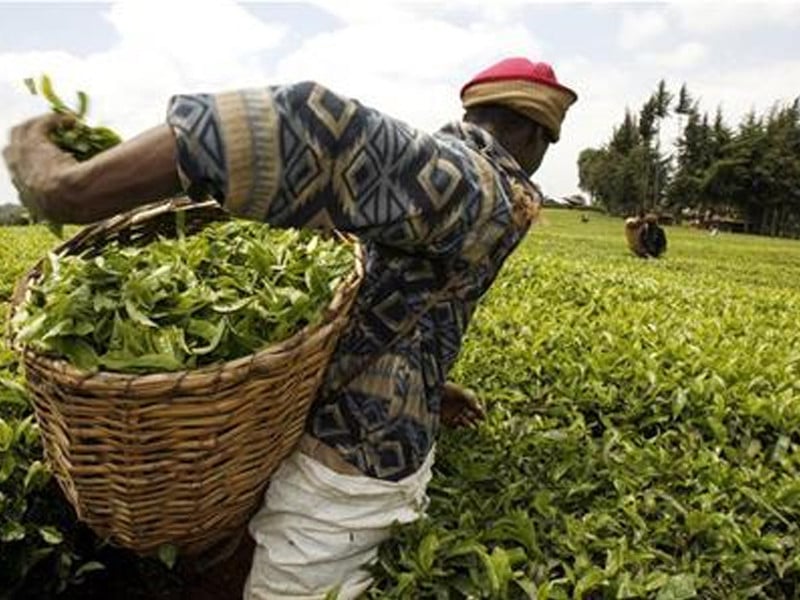 Pakistan and Kenya have initiated high-level talks aimed at diversifying their trade relations beyond the traditional exchange of tea, seeking new avenues for economic collaboration. This discussion, which took place in a series of meetings between officials from both nations, highlights a growing desire to enhance bilateral trade and explore mutually beneficial sectors such as agriculture, technology, textiles, and infrastructure.
Pakistan and Kenya have initiated high-level talks aimed at diversifying their trade relations beyond the traditional exchange of tea, seeking new avenues for economic collaboration. This discussion, which took place in a series of meetings between officials from both nations, highlights a growing desire to enhance bilateral trade and explore mutually beneficial sectors such as agriculture, technology, textiles, and infrastructure.
Historically, tea has been a cornerstone of trade between Pakistan and Kenya, with Kenya being one of the largest producers of tea in the world. Pakistan, on the other hand, has been one of the biggest importers of Kenyan tea. However, with both nations striving for economic growth and development, they are looking to reduce dependency on a single commodity and explore a more diverse trade portfolio.
The two countries are looking to leverage their respective strengths in agriculture and industry to build stronger trade ties. Pakistan, with its robust textile industry, sees Kenya as a potential partner for exporting fabrics and garments, while Kenya could gain access to Pakistan’s large consumer market for its agricultural products and natural resources.
### Expanding Sectors of Interest
**Agriculture**
Both countries have significant agricultural sectors, and there is an increasing push to expand cooperation in food production and agribusiness. Kenya, known for its rich agricultural resources including coffee, horticulture, and floriculture, could find markets for its products in Pakistan. Conversely, Pakistan’s agricultural machinery, seeds, and expertise could assist Kenya in enhancing its farming practices and increasing productivity.
**Technology**
Pakistan’s rapidly growing tech industry is another area ripe for collaboration. With a burgeoning start-up ecosystem, particularly in digital innovation, Pakistan is looking for new markets for its tech products and services. Kenya, often referred to as the “Silicon Savannah” due to its rapidly growing tech hub in Nairobi, is keen to integrate more technological solutions into its economy. The collaboration could foster knowledge transfer, joint ventures, and innovations in mobile banking, fintech, and e-commerce.
**Textiles and Manufacturing**
Textiles are another focal point in these discussions. Pakistan is known for its extensive textile industry, producing a wide range of garments and fabrics. With Kenya working to expand its manufacturing base, particularly in the textile sector, there is potential for partnerships that could see Kenyan industries tapping into Pakistan’s expertise in fabric production and garment manufacturing.
**Infrastructure and Energy**
Energy and infrastructure development are key areas where both countries can work together. Pakistan, which is investing heavily in infrastructure development, could provide expertise in building roads, railways, and energy projects. In return, Kenya’s rapidly expanding infrastructure needs could provide Pakistan with significant opportunities for construction contracts and technical collaboration.
### Strategic Importance of the Partnership
The strengthening of trade ties between Pakistan and Kenya is strategically important not just for the two countries, but also for the broader African and South Asian regions. Kenya serves as a gateway to East Africa, which is one of the fastest-growing regions in the world. Meanwhile, Pakistan, with its deepening connections to South Asia and Central Asia, can offer Kenya access to a market of over 1.5 billion people.
Both nations are also looking at ways to cooperate within the framework of regional and international trade organizations. Pakistan is a member of the South Asian Association for Regional Cooperation (SAARC), while Kenya is part of the East African Community (EAC) and the African Union (AU). By boosting bilateral trade, both countries could strengthen their positions in these regional blocs and enhance their global trade influence.
### Challenges to Overcome
Despite the optimism surrounding the partnership, several challenges remain. One of the major hurdles is the limited trade infrastructure and the high cost of transport between the two countries, given their geographical distance. Both nations will need to improve logistical connectivity to make the movement of goods more efficient and cost-effective.
Another challenge lies in regulatory and policy barriers. Pakistan and Kenya have different trade regulations, tax systems, and customs procedures, which could complicate efforts to streamline trade. However, both governments have indicated their commitment to working through these issues by improving trade facilitation measures, including potential free trade agreements or bilateral trade pacts.
### Future Outlook
As both countries continue their discussions, the future of Pakistan-Kenya trade looks promising. With the signing of new agreements and the expansion of existing trade networks, these two nations are poised to develop a more diversified economic partnership. In the coming years, it is expected that bilateral trade will increase significantly as both countries deepen their engagement in various sectors, laying the foundation for a stronger, more resilient economic relationship.
The growing cooperation between Pakistan and Kenya could serve as a model for other developing nations, demonstrating how strategic partnerships and diversification can lead to long-term economic prosperity.

